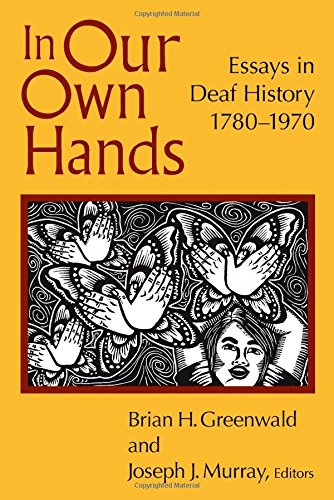Presented by the ASL Program in Penn's Department of Linguistics and cosponsored by Penn Humanities Forum.
A new generation of scholars in Deaf history, as published in In Our Hands: Essays in Deaf History, 1780–1970, are taking new approaches to ideas of autonomy and citizenship. In doing so, they are challenging some of the common assumptions about significant historical places and people. We take a closer look at two important subjects in United States and Deaf history: the National Deaf-Mute College (today Gallaudet University) and Alexander Graham Bell. These two seemingly disparate subjects have a closer connection to our history. The juxtaposition of then National Deaf Mute College and Alexander Graham Bell inform us what people thought of the institution at the time and Bell's influence not only at Gallaudet but also for contemporary America.
Joseph J. Murray is Associate Professor of ASL and Deaf Studies at Gallaudet University and is published in the fields of Deaf history, Deaf studies, and language planning and language rights. He is co-editor of Deaf Gain: Raising the Stakes for Human Diversity (2014, University of Minnesota Press) and In Our Own Hands: Essays in Deaf History 1780-1970 (2016, Gallaudet University Press). He has served as guest editor of two issues of Sign Language Studies: in 2015 on sign language rights and in 2016 on Deaf history. In addition, he has been involved with the World Federation of the Deaf (WFD) for two decades and is currently Vice President.
Brian H. Greenwald is Professor of History and Director of the Drs. John S. and Betty J. Schuchman Deaf Documentary Center. He is co-editor of A Fair Chance in the Race of Life: The Role of Gallaudet University in Deaf History and In Our Own Hands: Essays in Deaf History, 1780-1970 and has published articles and chapters on topics in Deaf history.



